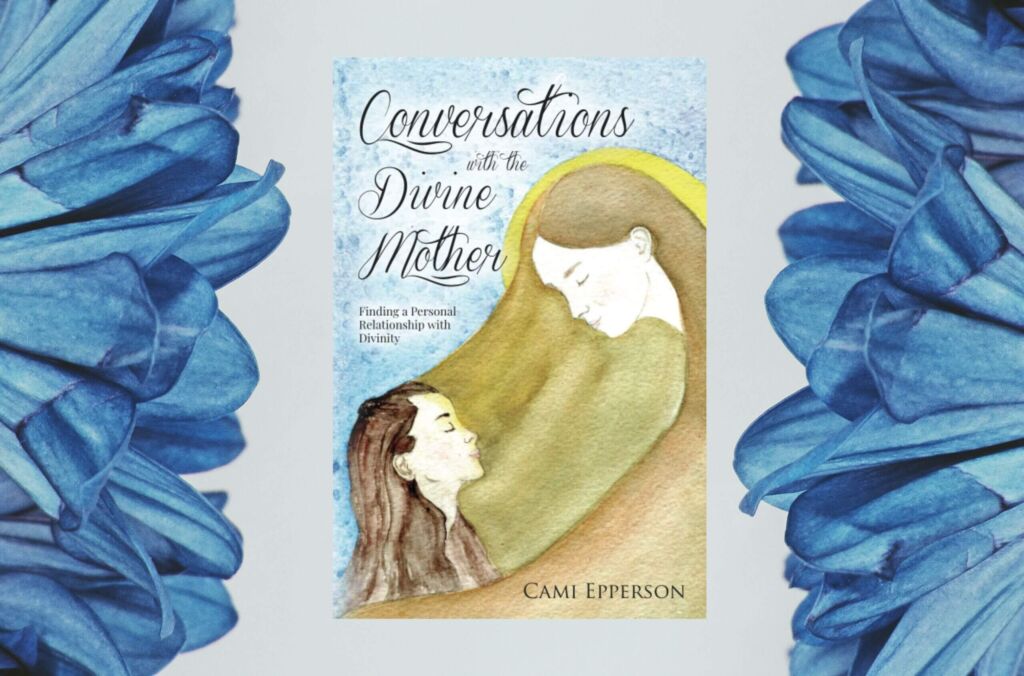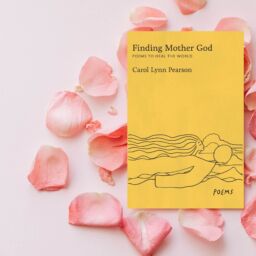
Conversations with the Divine Mother: Finding a Personal Relationship with Divinity by Cami Epperson, Illustrated by Cassandra Baer, Emily Shay Tueller, Dustynn Mullenaux, Clarissa Weitzell, Kristi Madeline Hyde, Reyna Perez Millan, Marni Butikofer, Samantha Jo Ryan, and Maci Epperson. Also available with black and white artwork.
In Conversations with the Divine Mother: Finding a Personal Relationship with Divinity, Cami Epperson pairs midrash/imagined conversations with the Mother with art and journal questions for the reader to ponder and respond to.
Although our life circumstances have been different, I, too, had a time when I could not feel connection to the Divine, when I could not fully trust in God the Father. It was only after connecting to the Divine Feminine and starting to recognize divinity within myself that I could re-connect with the God the Father. Though not ubiquitous, this experience has been very common among women I have talked with about the feminine divine.
Epperson guides the reader through a series of conversations with the Mother, each followed by a journaling prompt to aid the reader in imagining their own conversations with the Divine Mother. Together these conversations and journal prompts enable the reader both to know the Divine Mother and to recognize the divinity within themselves.
After reading Dance of the Dissident Daughter several years ago, I envied Sue Monk Kidd’s highly personal connection with the divine feminine. While I feel a yearning for connection, sometimes my relationship feels more academic/intellectual than spiritual. Though the persona of the Divine Mother in my imagination differs from Epperson’s, this book has been a great tool for expanding my relationship with the feminine divine and sparking my own questions and conversations with the divinity within me.
The conversations and journaling prompts cover a wide variety of topics, including agency, opposition, shame, racism, pandemics/disasters, creativity, connection, and masking our true selves. Although there is one section titled “Sisterhood,” the majority of the sections would be helpful for people of all genders who are seeking a connection with the Divine Mother. It should also be noted that the section titled “Gender” approaches gender with the idea that everyone is a mix of male and female energy, and that the masculine and female aspects of each individual should be celebrated.
I particularly liked the section on shame. After Epperson asks questions about shame, the Divine Mother responds:
You, my child, are innately pure. You seek Divine guidance in all you do. You follow that guidance when given. It can be difficult for others to understand sometimes, but don’t let that hinder you. Any judgement they pass is a reflection of the healing that needs to be done within themselves. . . No one else has a place to judge you, and you have no place to control how they feel. Be considerate always, care for and love others, and let the rest go. I know this is a difficult concept to master, as you care so deeply about the feelings of those around you, but you can not take on their feelings or judgments as your own. They become a blinding distraction to the real work you are meant to do. You were not created to manage how other people feel about you fulfilling your purpose. You were created to simply fulfill your purpose. Be bold and continue to listen. (page 183)
This loving response, which is focused on (1) expressing love, (2) recognizing the innate worth of the reader, and (3) reinforcing their ability to make choices for themselves (but not for others), is representative of the voice and messages of the Divine Mother in this book.
If you want a structure through which to work on your personal relationship with the divine feminine and make that relationship more concrete than abstract, I would recommend Conversations with the Divine Mother: Finding a Personal Relationship with Divinity by by Cami Epperson. Do not try and read through it in one sitting. Work through it slowly and be prepared to experience deep and raw emotions as you develop a relationship with the Divine Mother.
Review copy provided by Cami Epperson. All thoughts and opinions are my own.



